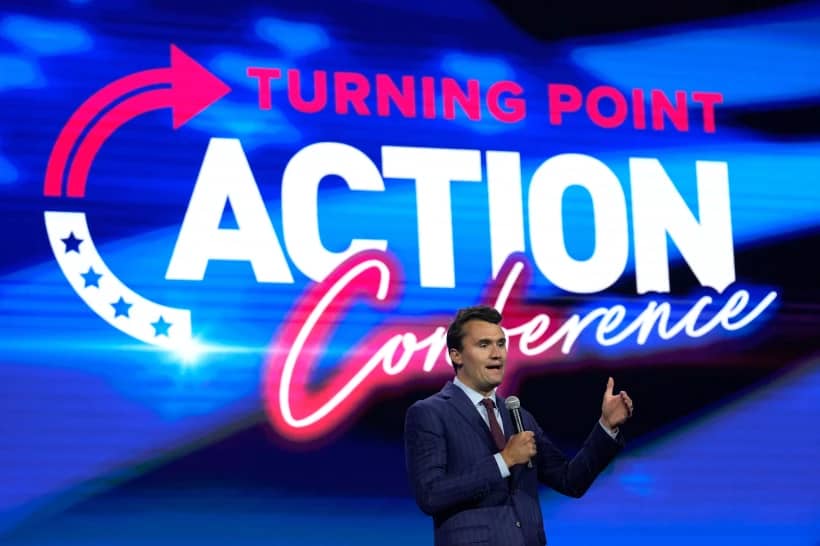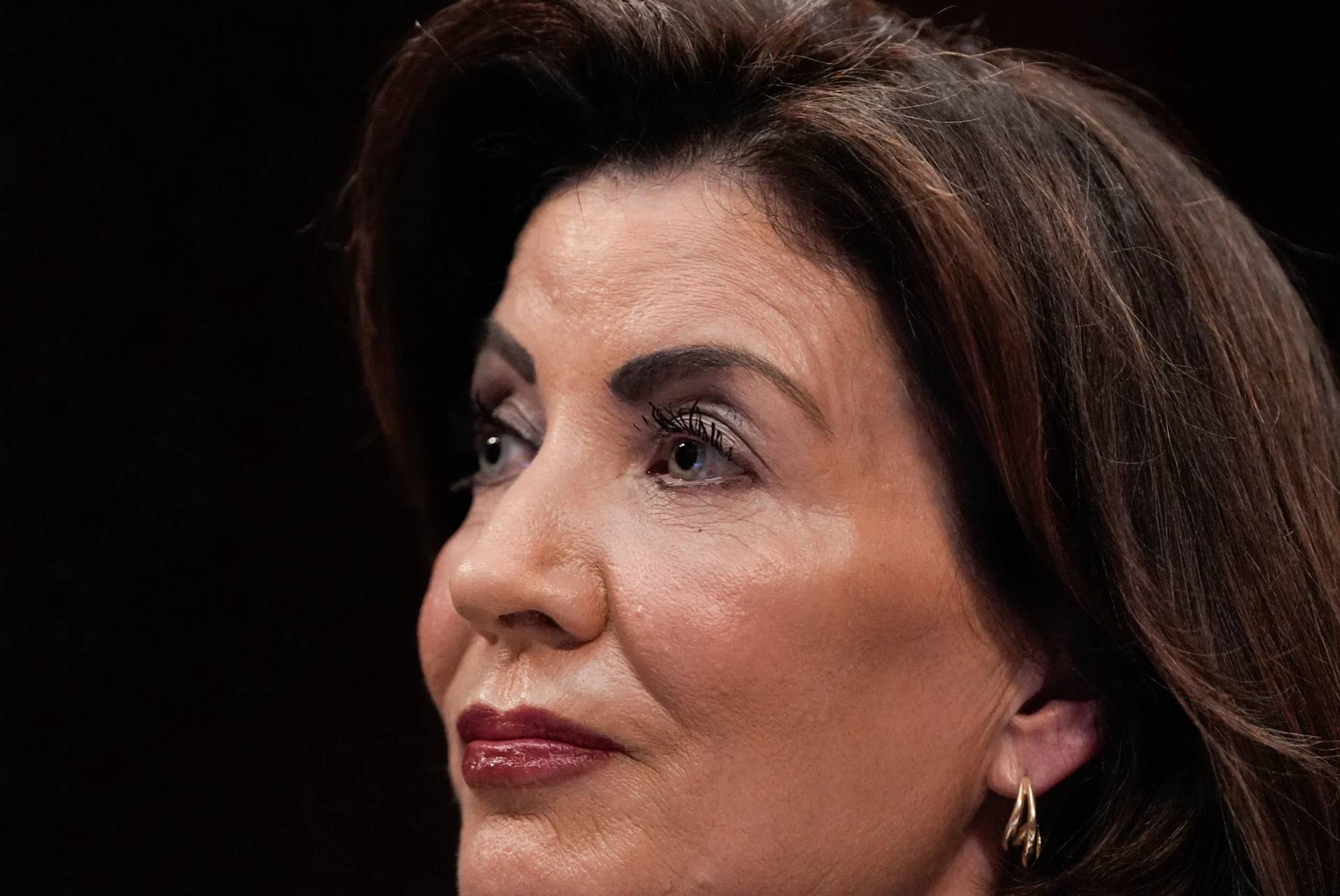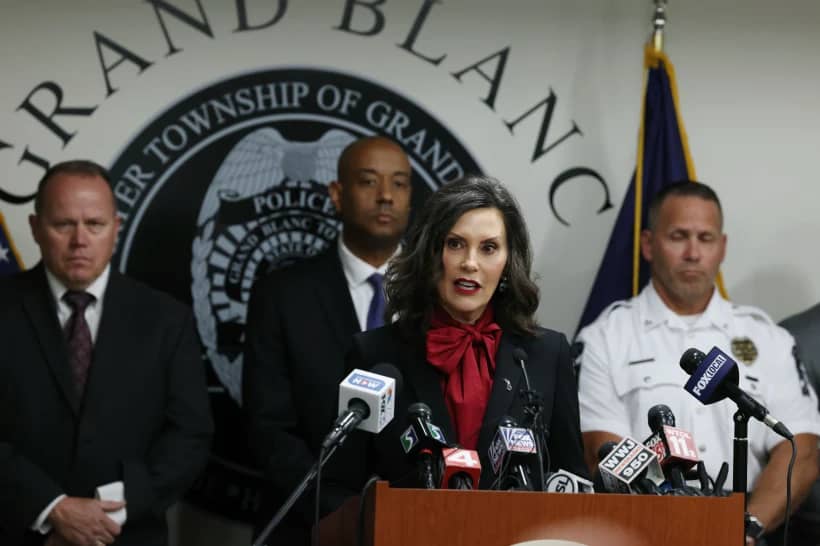WASHINGTON — U.S. Catholic officials whose agencies serve and advocate for immigrants voiced strong opposition to recently announced Department of Homeland Security guidelines for border security, immigration enforcement and enhancing public safety.
Bishop Joe Vásquez of Austin, Texas, chairman of the U.S. Conference of Catholic Bishops’ Committee on Migration, said the Feb. 20 DHS memoranda could “harm public safety rather than enhance it.”
In a Feb. 23 statement, the bishop also said those policies “will needlessly separate families, upend peaceful communities, endanger the lives and safety of the most vulnerable among us, break down the trust that currently exists between many police departments and immigrant communities, and sow great fear in those communities.”
President Donald Trump in his order on immigration enforcement called illegal immigration “a clear and present danger” to the United States, and he said a wall should be built along the country’s southern border with Mexico, staffed by increased personnel to “prevent illegal immigration, drug and human trafficking, and acts of terrorism.”
That presidential order said U.S. policy would be to “detain individuals apprehended on suspicion of violating federal or state law, including federal immigration law,” and expedite their removal from the country after their legal claims have been rejected by the courts.
The DHS guidelines would also implement the president’s call for the hiring of 5,000 new Border Patrol agents and his directive for hiring 10,000 additional immigration officers.
The guidelines would stiffen enforcement actions against unaccompanied minors attempting to enter the country and allow for criminal prosecution and deportation of any individual, including parents, who “directly or indirectly facilitates the illegal smuggling or trafficking of any alien child in the United States.”
Administration and DHS officials have said the new guidelines mainly target immigrants guilty of serious crimes, but U.S. Catholic officials maintain that the policies could instead lead to mass deportations among the estimated 11 million undocumented immigrants in the United States.
Vásquez said the DHS memoranda greatly increases the “militarization of the U.S./Mexico border” and eliminates key protections “for vulnerable populations, including unaccompanied children and asylum seekers.”
“Taken together, these memoranda constitute the establishment of a large-scale enforcement system that targets virtually all undocumented migrants as ‘priorities’ for deportation, thus prioritizing no one,” he said.
Ashley Feasley, the director of policy for the U.S. bishops’ conference Migration & Refugee Services, echoed that concern.
“The administration said it wants to deport criminals, but the executive orders and memoranda rapidly broaden and expand extensively who is considered a criminal and a priority for deportation,” she told Crux.
The MRS official said the new guidelines target those who are “convicted, charged or may have committed crimes.” While campaigning for president, Trump said all those who are in the country illegally are subject to deportation.
Critics of the administration’s immigration policies say that not only hardened criminals like drug traffickers could be targeted, but undocumented immigrants stopped for a traffic violation could be at risk of deportation.
“This creates a lot of fear in immigrant communities,” Feasley added. “People are afraid, particularly families with undocumented members, (including) mixed status families, are afraid to go about daily life, out of fear they could be separated from their loved one, or their loved one could be deported.”
Dominican Sister Donna Markham, the president and CEO of Catholic Charities USA, also underscored the human impact of the executive orders and DHS implementation guidelines.
“Catholic Charities agencies across the country see firsthand the unimaginable fear that exists in the immigrant community,” she said in an email interview with Crux.
Those immigrants, she said, “are terrified that their families will be torn apart. Many persons coming from Central America and Mexico are fleeing for their lives due to gang violence. In a more direct way, these agencies are now faced with the daunting task of trying to plan for the care of children whose parents have been removed.”
The Catholic Charities leader said her agency appreciates “the importance of a nation’s ability to secure its border to ensure the safety of our country,” but she added, “My heart breaks when I watch how we are treating families who are extremely vulnerable and largely trying to look out for the safety of their children.”
Jeanne Atkinson, the executive director of the Catholic Legal Immigration Network, Inc., also strongly criticized the administration’s immigration enforcement policies, saying, “They create panic, separate families, harm the safety of our communities, hurt our economy and damage the nation’s image in the world.”
CLINIC works with more than 300 independent nonprofit agencies throughout the United States, most of them affiliated with the Catholic Church, in providing legal services to immigrants.
“The orders and how they are being implemented are creating an atmosphere of terror among immigrants nationwide, no matter their legal status,” she said in an email interview with Crux.
Atkinson noted reports of how some immigrant families are afraid to send their children to school, and the new policies have also reportedly made some immigrants reticent to seek medical help or report crimes.
Donald Kerwin – the executive director of the Center for Migration Studies, a New York-based think tank founded by the Missionaries of St. Charles (Scalabrinians), a community of Catholic priests, women religious and lay people dedicated to serving migrants and refugees – said no one in the immigration debate is opposed to deporting immigrants guilty of serious crimes. But he said early enforcement actions also netted undocumented immigrants not guilty of serious infractions.
“It’s quite clear what’s anticipated are mass deportations,” he charged. “They’ve already started indiscriminate raids.”
Kerwin said the administration’s unfolding immigration policies offer “disastrous” implications for the United States, on both human and economic levels. He said in addition to the terrible human cost of separating U.S.- born children from their undocumented parents, a recent report by his organization found that the resulting immigrant families plunged into poverty by the loss of a wage-earning parent could cost the country $118 billion.
That report also found that mass deportations could lead to the default of 2.4 million mortages held by households with undocumented immigrants, compared to 2.8 million properties that received mortgage foreclosure notices during the economic crisis in 2009.
The Catholic officials interviewed by Crux urged the United States to adopt a more humane immigration policy.
“Our country would be better served by policies that address the plight of the millions of immigrants and refugees in this country and provide a pathway to citizenship for those eager to prove themselves hard-working, law-abiding citizens. Integral to this is allowing families to remain intact,” Markham said.
The Catholic Charities leader added that she believes “an effective immigration policy must also work to address the underlying causes in countries of origin pushing people to look for opportunity and safety for themselves and their families. Women and children are among those most vulnerable.”
Atkinson said the current immigration controversy demonstrates “what happens when our country’s laws don’t keep up with the situation. We have needed a major overhaul of immigration laws for at least 20 years.”
In that vacuum, the Obama and now the Trump administrations have tried to tackle “what they see as the most urgent needs” in immigration policy, she said
“The Trump administration’s approach, unfortunately, is going after the vulnerable immigrants who have no recourse to make their status legal, instead of tackling the real problem, a bad system,” Atkinson said.
The CLINIC leader said a just and humane immigration policy should provide “a better way to keep families together, with legal status for everyone; and provisions for American employers to legally get the workers they need for the difficult, labor-intensive jobs that immigrants are willing to take and which U.S. citizens are not.”
Vásquez in his statement repeated a request that the nation’s Catholic bishops have made in response to the president’s executive orders on immigrants and refugees, that the administration reconsider its approach.
“Together, these have placed already vulnerable immigrants among us in an even greater state of vulnerability,” he said.
To assist immigrants and the parishes serving them, Migration and Refugee Services has produced an online video resource in Spanish and also in English .
In the videos, Leidy Perez-Davis, a staff attorney with Catholic Charities of the Archdiocese of Washington’s Immigration Legal Services, offers general guidance to help people know their rights regarding immigration enforcement.
The resource says people can find more information from the Catholic Legal Immigration Network and Catholic Charities USA.
Summarizing the U.S. Catholic bishops’ stance on balancing concerns for secure borders and public safety with the need for a humane immigration policy, Feasley said, “The bishops have long advocated and respected the right of nations to control their borders. But that control needs to be just and humane.”
“Targeting families living peacefully here, some of whom have U.S. citizen children, is not just or humane,” she said.














